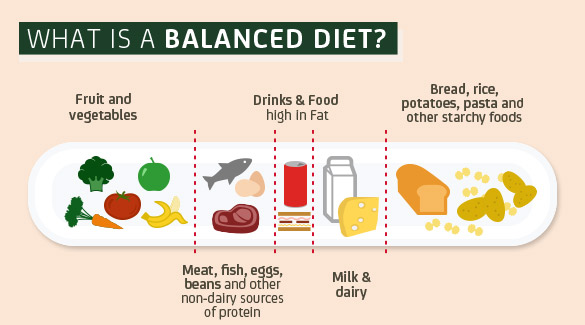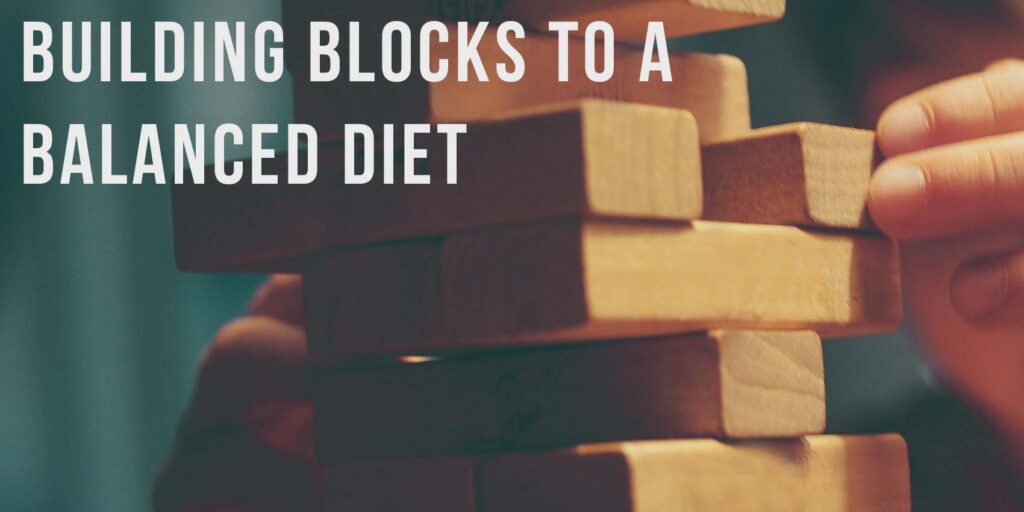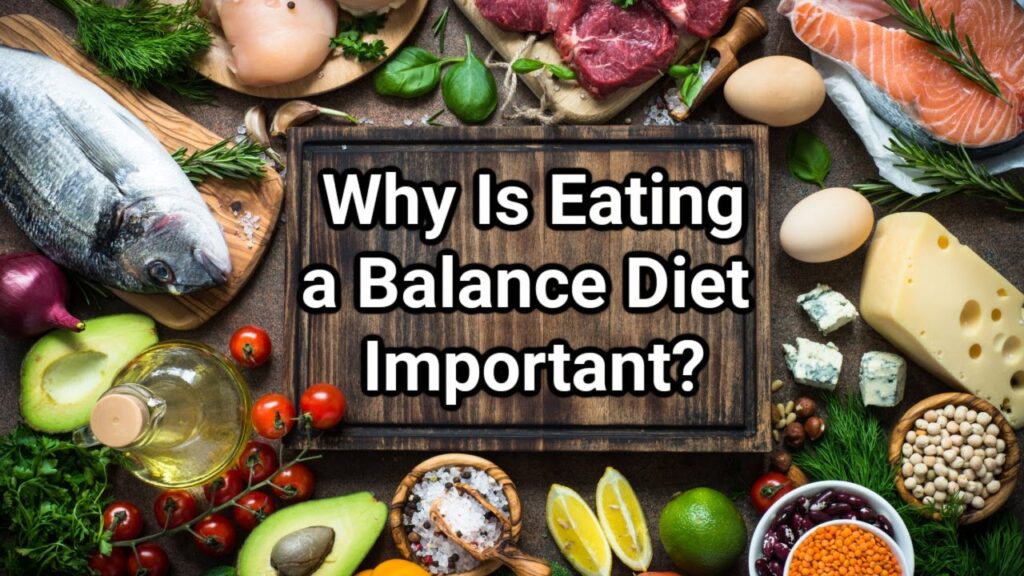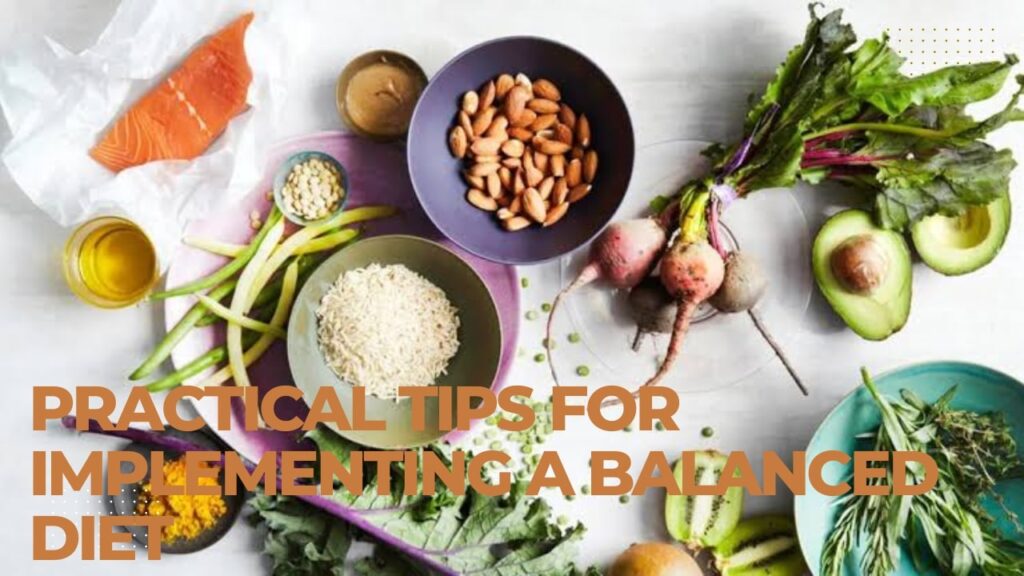Why You Shouldn't Overlook the Importance of Eating a Balanced Diet
Maintaining a balanced diet is crucial for overall health and well-being. However, in today’s fast-paced world, it is easy to overlook the importance of eating a variety of foods that provide essential nutrients. In this blog post, we will delve into what constitutes a balanced diet, the significance of eating a balanced diet, common barriers to maintaining one, and practical tips for achieving a balanced diet.
What Constitutes a Balanced Diet?

A balanced diet comprises a diverse selection of foods from each of the primary food groups in the right proportions to provide the body with the necessary nutrients for optimal function. These primary food groups include:
**Fruits and Vegetables: These should cover half your plate at most meals. They are a vital source of vitamins, minerals, fiber, and antioxidants. The variety in colors ensures a wide range of nutrients, with dark leafy greens, bright reds, oranges, and purples offering different benefits.
**Grains: At least half of the grains consumed should be whole grains, such as whole wheat, oats, and brown rice. Whole grains are crucial for providing the body with fiber and energy.
**Protein: A balanced diet includes lean protein sources such as poultry, fish, beans, and nuts. Protein is pivotal for muscle repair, growth, and overall cellular function.
**Dairy: Low-fat or fat-free dairy products, or dairy alternatives, are essential for their calcium, vitamin D, and protein content. They support bone health and contribute to the proper functioning of the muscular and nervous systems.
**Fats: Healthy fats, like those found in avocados, olive oil, and fatty fish, play a significant role in brain health, inflammation reduction, and energy.
Incorporating a mix of these foods in the right proportions ensures that the body receives comprehensive nutritional coverage. This approach allows for flexibility in diet and can accommodate personal preferences, dietary restrictions, and cultural food traditions, making it attainable and sustainable for most individuals.
The Building Blocks of a Balanced Diet

The Building Blocks of a Balanced Diet encompass the essential components our bodies need to thrive. Protein, found in lean meats, beans, and nuts, serves as the cornerstone for repairing and building tissues. It’s a vital part of the diet that supports everything from muscle growth to the healing of wounds.
Dairy products, or their fortified alternatives, provide a rich source of calcium and vitamin D, crucial for maintaining strong bones and teeth. This group ensures that our skeletal system receives the support it needs to carry us through daily activities and beyond.
Beyond these, carbohydrates play a significant role in supplying the energy our bodies require. Opting for whole grains over refined versions maximizes the benefit, providing not only energy but also necessary fiber and various nutrients that support digestion and can help in maintaining a healthy weight.
Fats, often misunderstood, are essential for brain health, energy, and the absorption of certain vitamins. Choosing healthy fats such as those found in fish, avocados, and nuts can help reduce inflammation and support cardiovascular health.
Each of these components brings its unique set of benefits, underscoring the importance of a varied diet that includes items from all food groups. By ensuring a good mix of these elements, we equip our bodies with the tools needed for optimal functioning, highlighting the significance of diversity in our dietary choices. Incorporating a range of foods not only caters to the nutritional needs but also adds enjoyment and satisfaction to eating, making a balanced diet both a pleasure and a pillar of good health.
Importance of Eating a Balanced Diet

The critical role of a balanced diet in our overall health landscape cannot be understated. It acts as the cornerstone of maintaining an ideal weight, which is pivotal in staving off numerous lifestyle-related illnesses such as cardiovascular diseases, diabetes, and certain forms of cancer. Beyond its preventive benefits, a balanced diet fuels the body with the right mix of nutrients, enhancing energy levels and cognitive functions, which in turn improves our daily performance and quality of life. Nutrient-rich foods provide the foundation for a strong immune system, minimizing our susceptibility to infections and illnesses.
Neglecting to consume a varied diet can lead to nutritional deficiencies, which have a domino effect on our health. For instance, insufficient intake of calcium and vitamin D can compromise bone health, while a lack of antioxidants and vitamins might impair our body’s ability to combat oxidative stress, leading to accelerated aging and increased vulnerability to diseases.
Moreover, the mental and emotional benefits of a balanced diet are significant. Studies have shown a correlation between diet quality and mental health, indicating that nutritious foods can improve mood and reduce the risk of depression. This psychological aspect underscores the comprehensive benefits of a balanced diet, illustrating that its impact extends far beyond the physical to encompass mental and emotional well-being.
In essence, a balanced diet is not just about physical health; it’s a multifaceted contributor to our overall well-being. Its significance is rooted in its capacity to nourish the body thoroughly, ensuring that each system functions optimally, laying a robust foundation for a healthy life.
Common Barriers to Maintaining a Balanced Diet

While striving to maintain a balanced diet, several obstacles can stand in the way, affecting our ability to adhere to healthy eating habits consistently. One prominent challenge is the fast-paced nature of modern life, which often prioritizes convenience over nutritional value. This leads many to opt for fast food or ready-made meals, which may lack essential nutrients. Financial constraints also play a significant role, as healthier food options are perceived to be more expensive than their processed counterparts, making it difficult for individuals on a tight budget to consistently choose nutritious foods.
Another barrier is the overwhelming amount of conflicting information about nutrition available online and in the media. This can create confusion about what foods should be included in a balanced diet, leading to poor dietary choices. Additionally, personal preferences and dietary restrictions, whether due to allergies, health conditions, or ethical choices, can limit options and make it challenging to find a variety of foods that fit within these parameters.
The social and cultural aspects of food also influence our eating habits. Social gatherings often revolve around food that may not always align with the principles of a balanced diet. Cultural norms and traditions can also dictate dietary choices that may not provide the full spectrum of nutrients the body needs.
Understanding and navigating these barriers is a critical step towards establishing and maintaining a balanced diet. Recognizing the challenges allows individuals to seek out strategies and resources to overcome them, making healthy eating a more achievable goal.
Tips for Achieving a Balanced Diet

To navigate towards a balanced diet, thoughtful preparation and mindful eating choices are paramount. Initiating this journey requires incorporating a mix of colorful fruits and vegetables into your meals; this not only enhances the visual appeal but also ensures a broad spectrum of nutrients. Opt for whole grains as they are more nutrient-dense and provide sustained energy compared to their refined counterparts. Protein sources should be varied, combining animal-based options like poultry and fish with plant-based choices such as beans and lentils to cater to different nutritional needs and preferences.
Minimizing intake of processed foods and beverages high in added sugars is critical. These items are often calorie-dense yet offer little nutritional value, contributing to various health issues when consumed in excess. Staying hydrated is another key aspect; drinking water throughout the day supports metabolism and aids in the digestion and absorption of nutrients.
Experimenting with cooking methods can also play a significant role. For instance, steaming or grilling vegetables preserves more nutrients than boiling. Planning meals ahead can alleviate the temptation of convenient but unhealthy options, ensuring a better adherence to nutritional goals. Lastly, be mindful of portion sizes to avoid overeating, even when consuming healthy foods. Implementing these strategies can significantly enhance the quality of your diet, steering you towards better health and vitality.
Conclusion
Understanding and incorporating a balanced diet into daily life is more than a mere recommendation—it’s a critical component for fostering good health and longevity. The journey toward a balanced diet is marked by informed choices and a conscious effort to include a variety of nutrient-rich foods. This approach not only ensures the body receives the comprehensive nourishment it needs but also elevates overall well-being. Embracing a diet that spans all major food groups in proper proportions supports not just physical health but mental and emotional well-being too.
With practical strategies and a bit of planning, overcoming common obstacles to healthy eating becomes manageable, allowing for a sustainable shift towards better nutrition. As we move forward, let’s remember that the benefits of a balanced diet extend far beyond the immediate, impacting our quality of life in profound ways. Making thoughtful food choices is an investment in our future, one that pays dividends in health and happiness.



